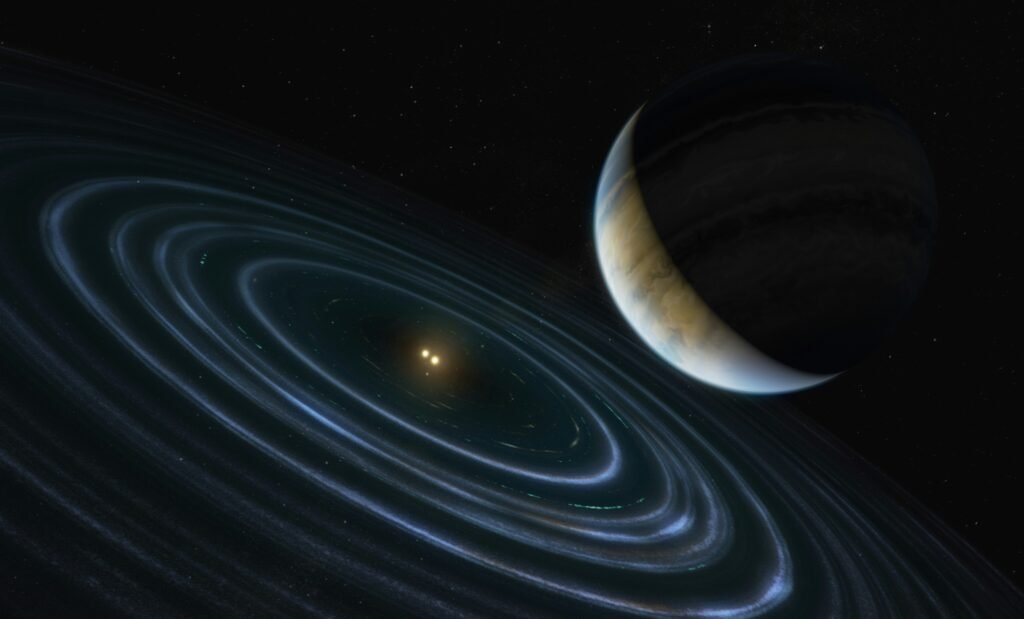
For generations, people have stared at the night sky and asked, “Are we alone in the universe?” With advances in technology, this question is now being explored through science instead of just stories.
Space agencies around the world, especially NASA in the US and other programs in the UK, are using powerful tools to search for signs of extraterrestrial life. Space exploration is an exciting mission that’s changing how we see the universe and our place in it.
Why the Search for Extraterrestrial Life Is Important

Scientists think that if life began on Earth, it could’ve started on other planets or moons with the same kind of conditions. The key ingredients for life include water, energy (like heat or sunlight), and the right chemicals. If these conditions are found somewhere in the universe, we may find life forms there, even if they are small or very different from life on Earth.
Finding life in space would change science forever. It could help us understand how life began here, what it needs to survive, and how common life might be in the galaxy. That’s why this topic is so important in space research today.
How Space Exploration Helps Us Search for Life

Modern space exploration is closely linked with the search for extraterrestrial life. Through the use of robots, satellites, and space telescopes, scientists study planets, moons, and distant regions of space.
Key tools used in this search include:
- Mars Rovers: Machines like Curiosity and Perseverance explore Mars, take samples, and send photos and data back to Earth.
- Space Telescopes: The James Webb Space Telescope looks deep into space to study faraway planets called exoplanets.
- Orbiters and Probes: These fly close to moons and planets to study their atmosphere and temperature.
Why Mars Is a Key Focus

Mars is one of the best places to search for extraterrestrial life. In the past, Mars had rivers, lakes, and maybe even oceans. Today, NASA missions on Mars are digging into the soil, examining rocks, and searching for signs that life once existed.
The Perseverance rover is collecting rock samples that may be sent back to Earth in the future. If those rocks contain even the tiniest traces of past life, it will be a breakthrough.
Other Promising Places to Explore
Mars is not the only place scientists are watching. Other places in our solar system may also support life:
- Europa (moon of Jupiter): It has a deep ocean beneath a layer of ice. Heat from its core may keep the water liquid, making it a possible home for life.
- Enceladus (moon of Saturn): It shoots out water vapor from cracks in its surface. That water may come from an underground sea.
- Titan (moon of Saturn): It has lakes of methane and a thick atmosphere. Though it’s very cold, it's an interesting place for future study..
The Role of NASA and Global Teams
NASA, the United States' space agency, plays a leading role in space research and missions. But they are not working alone. The UK, European Space Agency (ESA), and other countries are all involved in global missions. Together, they share knowledge, build new technology, and send joint missions to explore the unknown.
With global cooperation, more advanced missions are being planned. Some include sending people to Mars, launching deep-space probes, and developing telescopes that can directly detect signs of life on distant planets.
Keeping the Public Interested
Public interest in space exploration and extraterrestrial life is strong. People are fascinated by the idea of life beyond Earth. Websites, apps, and science channels keep the public updated on space missions and discoveries.
If you want to learn more, you can buy books on extraterrestrial life, many of which explain science in simple terms. Some books even include interviews with real astronauts or space scientists. These resources are useful for students, teachers, or anyone interested in space and extraterrestrial life.
How the US and UK Are Leading the Way
In both the US and the UK, governments and private companies are investing in space research. NASA, based in the US, has been sending missions to space for decades. In the UK, space agencies are focusing on satellite technology, research, and international cooperation.
This teamwork between the US, UK, and other nations helps move science forward. More missions, faster data collection, and shared goals mean faster progress in understanding the universe.
How Space Exploration Guides Our Future
Exploring space and searching for life may also help us protect Earth. By learning about other planets and extraterrestrial life, we get better at understanding our own planet’s climate, environment, and resources. The search also inspires young people to pursue studies in science, technology, and engineering fields that contribute to global progress.
It also brings countries together for a common purpose. As we reach for the stars, we are reminded that we are all part of one planet, looking for answers in the vast universe.
Conclusion
The search for extraterrestrial life is one of the most exciting parts of modern science. With the help of space exploration, scientists are slowly uncovering the secrets of the universe.
Whether you read the latest news, buy books on extraterrestrial life, or enjoy watching a rocket launch, there’s a place for everyone in this story. One day, we may find out that life exists somewhere out there — and when we do, it will change everything we know about space, science, and ourselves.







